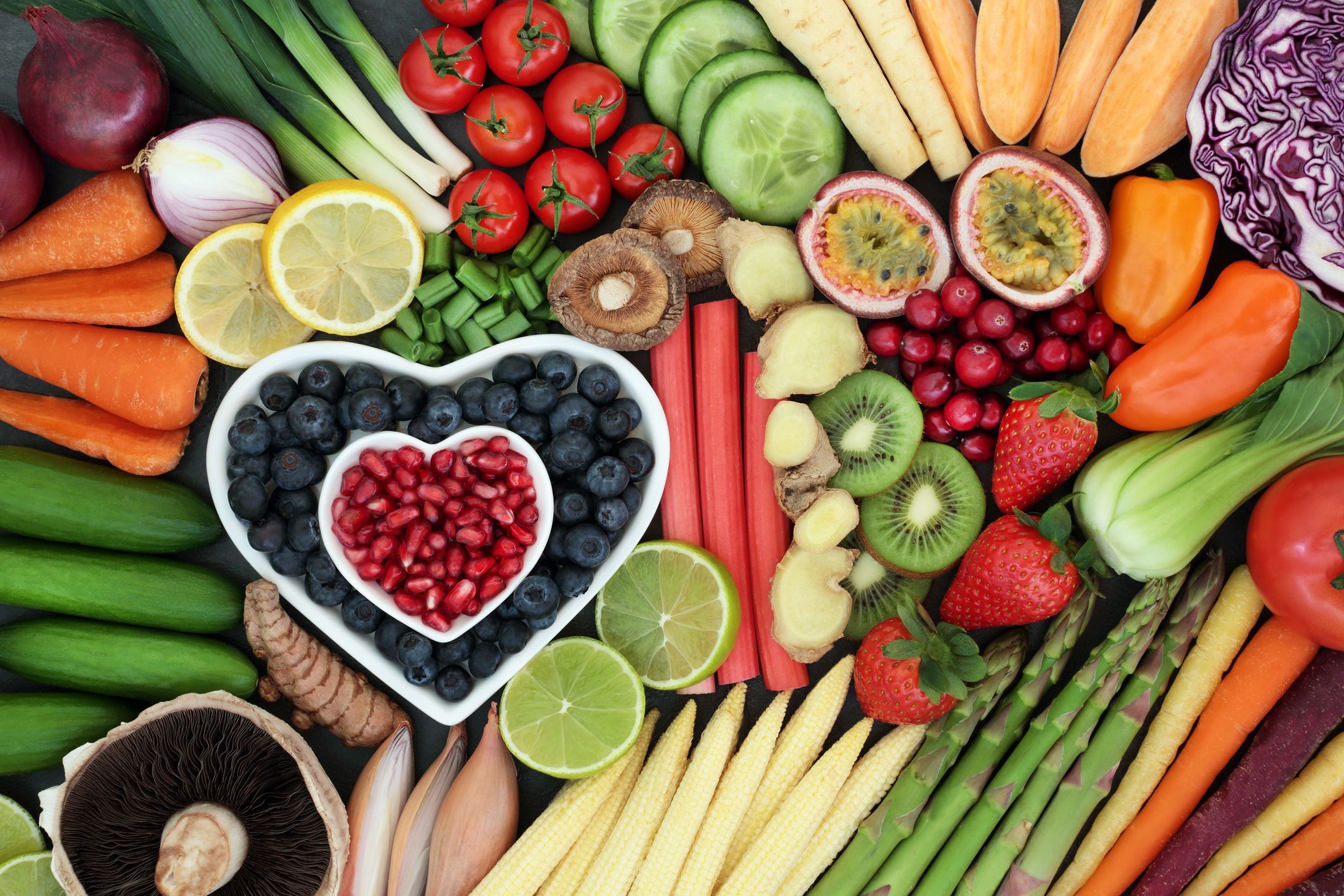As the question of “Is Eating Vegetarian Healthier?” takes center stage, we embark on a journey to explore the intricate world of vegetarianism, uncovering its potential health benefits, environmental impact, ethical considerations, and challenges. Join us as we delve into the complexities of plant-based diets, unraveling the science behind their impact on our well-being and the planet.
The content of the second paragraph that provides descriptive and clear information about the topic
Health Benefits of a Vegetarian Diet
A vegetarian diet, which excludes meat, poultry, fish, and seafood, offers numerous health benefits. Studies have shown that vegetarians tend to have lower risks of developing chronic diseases such as heart disease, stroke, type 2 diabetes, and some types of cancer.
Find out about how becoming a pescatarian to lose weight can deliver the best answers for your issues.
Plant-based foods are rich in nutrients and antioxidants that contribute to overall well-being. They are good sources of fiber, vitamins, minerals, and phytonutrients, which have anti-inflammatory and disease-fighting properties.
Reduced Risk of Chronic Diseases
- Heart disease:Vegetarians have a lower risk of heart disease due to their lower intake of saturated fat and cholesterol. Plant-based foods are rich in fiber, which helps lower cholesterol levels.
- Stroke:A vegetarian diet has been linked to a lower risk of stroke. This is likely due to the lower intake of saturated fat and cholesterol, as well as the higher intake of fruits, vegetables, and whole grains.
- Type 2 diabetes:Vegetarians have a lower risk of developing type 2 diabetes. This is likely due to their higher intake of fiber, which helps regulate blood sugar levels.
- Cancer:Some studies have shown that vegetarians have a lower risk of developing certain types of cancer, such as colon cancer and prostate cancer. This is likely due to the higher intake of fruits, vegetables, and whole grains, which contain antioxidants and other protective compounds.
Environmental Impact of Vegetarianism
Adopting a vegetarian diet offers significant environmental benefits. Reducing meat consumption leads to lower greenhouse gas emissions and water usage. Animal agriculture contributes heavily to deforestation, biodiversity loss, and water pollution.
Greenhouse Gas Emissions
- Animal agriculture accounts for approximately 14.5% of global greenhouse gas emissions, comparable to the transportation sector.
- Cattle, in particular, release methane, a potent greenhouse gas, during digestion.
- Shifting to plant-based diets can reduce individual carbon footprints and mitigate climate change.
Water Usage
- Meat production requires substantial water resources.
- Producing 1 pound of beef requires approximately 1,800 gallons of water, while 1 pound of wheat requires only 25 gallons.
- Adopting vegetarianism can conserve water and alleviate water scarcity in drought-prone regions.
Deforestation and Biodiversity Loss
- Animal agriculture is a major driver of deforestation, as land is cleared for grazing and feed production.
- Deforestation leads to habitat loss for wildlife and contributes to biodiversity loss.
- Vegetarianism can help protect forests and preserve biodiversity.
Water Pollution
- Animal agriculture generates significant amounts of waste, including manure and wastewater.
- These wastes can pollute waterways and contribute to eutrophication, harming aquatic ecosystems.
- Reducing meat consumption can mitigate water pollution and protect water quality.
Case Studies
Numerous studies have demonstrated the positive environmental effects of vegetarianism. For example, a study published in the journal “Environmental Science & Technology” found that adopting a vegetarian diet for one year could reduce an individual’s carbon footprint by 1.5 tons.
Challenges and Considerations
Adopting a vegetarian diet can present certain challenges that need to be acknowledged and addressed. One potential concern is ensuring adequate nutrient intake, as some essential nutrients may be less prevalent in plant-based foods.
Browse the multiple elements of good pescatarian meals to gain a more broad understanding.
To overcome this, it is crucial to plan a balanced diet that includes a variety of nutrient-rich plant foods. Consulting with healthcare professionals or registered dietitians can provide personalized guidance and ensure that individual nutritional needs are met.
Obtain access to foods a vegan can eat to private resources that are additional.
Social Pressures
Another challenge vegetarians may face is social pressures, particularly in situations where non-vegetarian food options are prevalent. Navigating social gatherings and dining out can require careful planning and communication to ensure dietary preferences are respected.
Comparison with Other Diets: Is Eating Vegetarian Healthier
Vegetarian diets offer unique health benefits and environmental advantages, but how do they compare to other popular dietary approaches? This section will explore the similarities and differences between vegetarian diets and other prevalent eating patterns, such as the Mediterranean diet and the ketogenic diet.
For descriptions on additional topics like healthy meals for pescatarians, please visit the available healthy meals for pescatarians.
Nutritional Content and Health Benefits
Vegetarian diets are generally rich in fruits, vegetables, whole grains, and legumes, providing a diverse range of nutrients. Compared to other diets, vegetarian diets tend to be higher in fiber, antioxidants, and phytochemicals, which have been linked to reduced risks of chronic diseases such as heart disease, stroke, and some types of cancer.
However, vegetarian diets may be lower in certain nutrients, such as vitamin B12, iron, and calcium, requiring careful planning and supplementation to ensure adequate intake.
Sustainability
Vegetarian diets are often considered more sustainable than diets that include animal products. Animal agriculture contributes significantly to greenhouse gas emissions, water pollution, and deforestation. By reducing or eliminating meat and dairy consumption, vegetarian diets can help mitigate these environmental impacts.
Comparison Table, Is eating vegetarian healthier
The following table summarizes the key differences between vegetarian diets and other popular dietary approaches:
| Diet | Focus | Health Benefits | Nutritional Content | Sustainability |
|---|---|---|---|---|
| Vegetarian | Plant-based foods | Reduced risk of chronic diseases | High in fiber, antioxidants, phytochemicals | More sustainable |
| Mediterranean | Fruits, vegetables, whole grains, fish | Improved heart health, reduced risk of chronic diseases | Rich in healthy fats, fiber, antioxidants | Moderately sustainable |
| Ketogenic | High fat, low carb | Weight loss, improved blood sugar control | High in saturated fat, low in fiber | Less sustainable |
Ethical Considerations
Ethical concerns play a significant role in the adoption of a vegetarian diet. Many individuals choose to abstain from consuming animal products due to concerns about animal welfare and the treatment of livestock.
Factory farming and intensive animal agriculture have come under scrutiny for their impact on the lives of animals and the environment. Animals raised in these systems are often subjected to inhumane conditions, including overcrowding, lack of proper veterinary care, and painful procedures.
Organizations Promoting Ethical Treatment of Animals
- People for the Ethical Treatment of Animals (PETA): A non-profit organization dedicated to promoting animal rights and opposing animal abuse.
- The Humane Society of the United States: A leading animal welfare organization that works to protect animals from cruelty, neglect, and exploitation.
- Farm Sanctuary: A non-profit organization that provides refuge to rescued farm animals and promotes compassionate farming practices.
Closing Summary
In conclusion, the decision of whether or not to adopt a vegetarian diet is a multifaceted one, influenced by a myriad of factors. From the potential health benefits and environmental implications to the ethical concerns and personal preferences, there is no one-size-fits-all answer.
However, by carefully considering the information presented in this article, readers can make informed choices that align with their values and aspirations for a healthier and more sustainable future.
FAQ
Is a vegetarian diet nutritionally adequate?
Yes, well-planned vegetarian diets can provide all the essential nutrients the body needs. However, it’s important to pay attention to protein, iron, vitamin B12, and calcium intake and consider supplementation if necessary.
What are the environmental benefits of vegetarianism?
Vegetarian diets have a lower environmental impact compared to meat-based diets. They require less land, water, and energy to produce, and they contribute to reduced greenhouse gas emissions and deforestation.
Is it difficult to socialize as a vegetarian?
With the growing popularity of vegetarianism, it’s becoming easier to find vegetarian options at restaurants and social gatherings. However, it’s important to communicate your dietary preferences clearly and be prepared to bring your own food if necessary.


